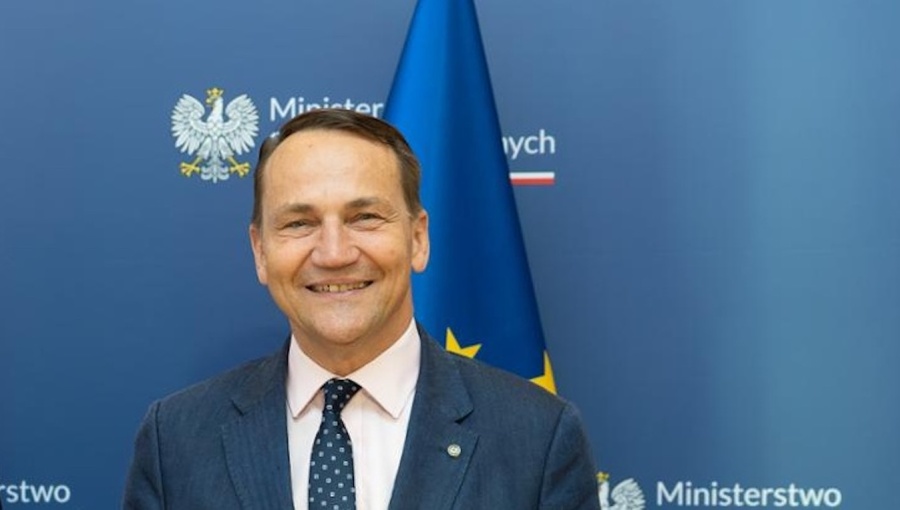Moscow will not negotiate in good faith until it faces clear limits on its military and economic options, Poland’s Foreign Minister Radosław Sikorski argued in an essay published by the New York Times on October 9.
Sikorski framed recent security incidents — more than 20 drones that entered Polish airspace on September 10 and a brief violation of Estonian airspace by Russian jets — as deliberate acts of escalation.
“These and other incidents are yet more proof that the Kremlin is not interested in peace but in escalation. If you are surprised by that, you have not been paying attention,” Sikorski wrote.
The minister also criticised repeated diplomatic overtures that lack coercive backing, noting that direct contacts and special envoys have not persuaded Moscow to halt its aggression.
Russia’s estimated 2025 defence budget and war expenditures for 2026, projected to reach 40% of Russia’s budget, underline how heavily the Kremlin is investing in force. Sikorski argued that negotiating from a position of weakness merely invites further demands.
Drawing on Cold War precedents, Sikorski proposed a two-stage strategy: first, raise the costs to Russia through robust military, economic and political measures; second, offer talks once Moscow realises it cannot achieve its aims by force.
Sikorski invoked the Reagan-Gorbachev arc as an example in which pressure preceded meaningful negotiation.
Sikorski also urged continued military and financial assistance for Ukraine, measures to erode Russia’s war economy and the use of frozen Russian assets to aid victims.
“A good beginning would be for the self-described MAGA acolytes in Hungary and Slovakia to listen to Mr. Trump and stop buying Russian oil, and to finally use the more than $200bn of frozen Russian assets in Europe to give financial assistance to the victims of Mr. Putin’s war,” Sikorski wrote.
“The leadership of Russia must understand that its attempt to rebuild Europe’s last empire is doomed to fail. The age of empires is over,” the Polish minister concluded.
